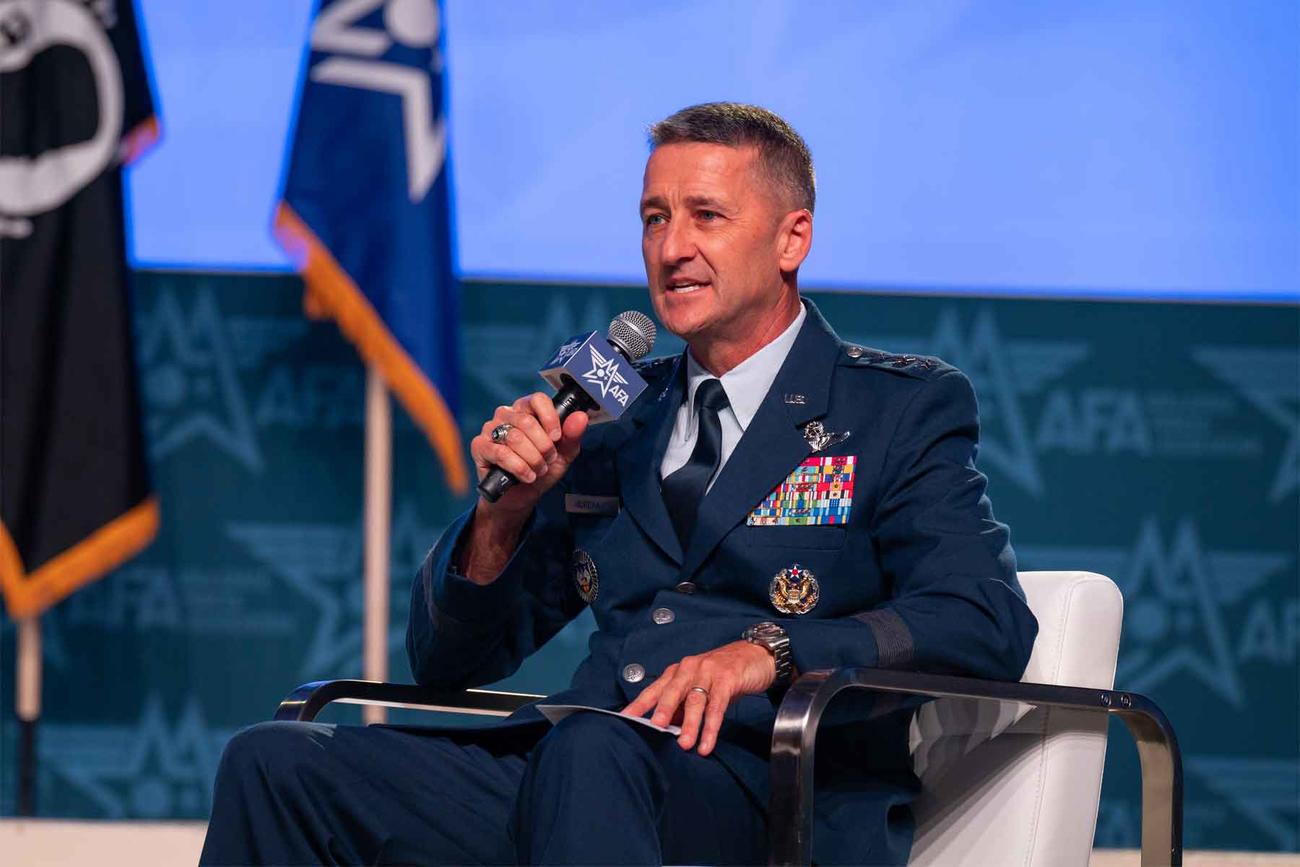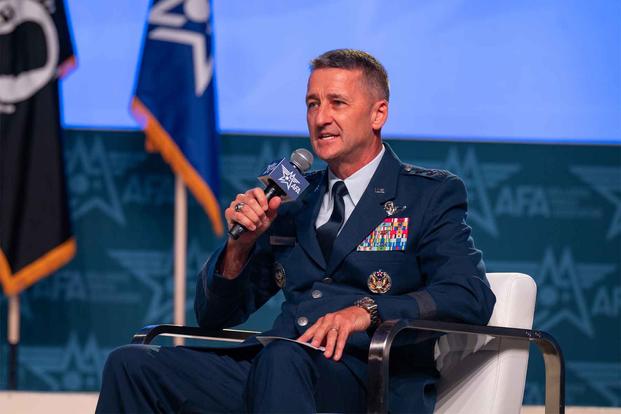

President Joe Biden nominated a top Air Force officer with North American Aerospace Defense Command, or NORAD, to serve as the next chief of the National Guard, but only a week before the service component’s current top officer is set to retire. And the Guard seemingly has no plan for a possible leadership vacuum.
Lt. Gen. Steven Nordhaus’ nomination was sent to the Senate on Tuesday. If confirmed, he would replace Army Gen. Daniel Hokanson, who retires Aug. 5. The National Guard typically rotates between Army and Air Force leadership.
The last-minute nomination from the White House comes just a week before the Senate, which must confirm Nordhaus for the role, goes on recess until Sept. 9. No confirmation hearings are scheduled for next week, possibly leaving the Guard without cemented leadership until at least the end of the summer. That means if Nordhaus isn’t confirmed next week, the Guard will be without clear leadership and will have to find someone to place into an acting role.
Army Lt. Gen. Jon Jensen, the current acting vice chief, the Guard’s No. 2 officer, is also set to retire Aug. 5.
It’s unclear whether the National Guard has an acting chief in mind or what its plan is if Nordhaus can’t be confirmed next week. The service component declined to comment.
The Guard chief is also a member of the Joint Chiefs of Staff, serving as a connection between the service component’s 54 states and territories, the Pentagon and the White House.
Senate Armed Services Committee Chairman Jack Reed, D-R.I., whose committee would handle Nordhaus’ confirmation hearing, told Military.com on Thursday that his panel is tentatively looking at holding a hearing as soon as next week before the chamber leaves for its break. Still, he said it’s “possible” a senator could object to speeding up the timeline for holding a hearing.
Asked whether he was frustrated that the White House didn’t send a nominee earlier to avoid a gap in leadership, Reed replied, “Yeah, frankly.”
“This is the exception to the rule,” he said. “Typically, we get our nominees in plenty of time. But this is one of those — and I don’t know what the dynamic was — but it inhibits us.”
The potential gap in leadership comes in the midst of hurricane season, as National Guard units have been increasingly relied on by state governors to respond to natural disasters as the impacts of climate change make major storms more frequent and severe.
“We have some really tough wildfires and hurricanes,” John Goheen, a spokesperson for the National Guard Association of the United States, told Military.com. “Who’s going to take on that task in terms of communication between the [states], to the president and secretary of defense? That’s the chief’s role.”
At any given time, some 20,000 Guardsmen are deployed abroad, mostly in the Middle East and Africa. But the service component also has a presence in Europe bolstering NATO’s front line amid Russia’s war in Ukraine.
Nordhaus would take on the role after Hokanson spent much of his political capital with lawmakers advocating for free health care for Guardsmen, an effort that has gained some traction but is likely a long shot due to the cost. The Guard has increasingly been eyeing offering more day care assistance for part-time troops, but the effort is in its infancy.
There have also been concerns of politicization or misuse of the Guard by some governors. Hokanson, in an interview with Military.com, said the Southwest border mission supercharged under Texas Gov. Greg Abbott is detrimental to the Guard’s priority of training for war and being available for swift responses to state emergencies.
Even if the Senate was able to do a quick turnaround on a confirmation hearing, there would not be a true transition process to settle Nordhaus into the role and allow him to learn the nuances of the job. By comparison, Sergeant Major of the Army Michael Weimer, the top enlisted leader for the Army, a much smaller job that doesn’t require Senate confirmation, had a nearly nine-month transition period.
Nordhaus, an aviator, commissioned through the U.S. Air Force Academy in 1989 and has flown combat missions in Iraq and Afghanistan. Before his time in NORAD, he was director of operations for the National Guard Bureau.
He spent the bulk of his career in the Ohio National Guard, where he was commander of the 112th Fighter Squadron. He has flown aircraft including the F-16 Fighting Falcon A, C and D models and the F-35A Lightning II.
Related: ‘At What Cost’: Guard Chief Argues Border Mission Is Getting in the Way of Warfighting
